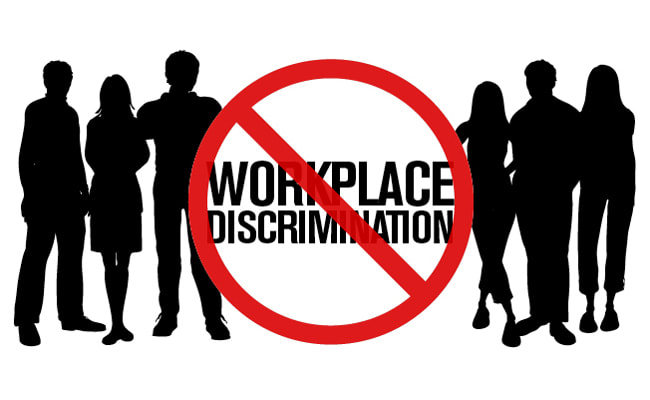The Supreme Court Debates if ‘Sex’ Discrimination Includes Sexual Orientation
By: Brooke McBee
By: Brooke McBee
|
Even in America, a supposed nation resembling notions of freedom and liberty, members of the LGBTQ community have been forced to tackle an endless amount of adversities due to how they identify and who they love. Prior to the twentieth century reforms, fines, castration, incarceration, and even death were possible punishments for those exhibiting homosexual behavior. In 1973, less than fifty years ago, the APA (American Psychological Association) officially removed homosexuality from its list of mental disorders, but clarified that they were “not saying that it is normal or that it is as valuable as heterosexuality.” It was not until June 2015, just over four years ago, that the Supreme Court legalized same-sex marriage, yet each of these accomplishments were solely battles in the perpetual war over the unfair treatment of LGBTQ people.
Members and allies of the LGBTQ community unceasingly advocate for a safer and more equal country despite the numerous injustices they continue to suffer from. Protection from unjust termination of one’s job is a right LGBTQ people are still attempting to attain, as three cases were sent to the Supreme Court on October 8, 2019 that could finally declare it illegal for employers to discriminate against their LGBTQ workers in all fifty states. Their goals were to argue that sexual orientation, gender presentation, and trans identity are included in Title VII of the Civil Rights Act of 1964 that prohibits discrimination “on the basis of sex.” In one of the cases, Gerald Bostock, 55, spent ten years overseeing volunteers representing neglected and abused children in the juvenile court system. Bostock, who had favorable performance reviews and who was awarded the Program of Excellence Award from Georgia CASA, was diagnosed with prostate cancer in 2012. Joining the LGBTQ Hotlanta Softball League, Bostock attempted to aid his mental and physical health, but his coworkers began to openly criticize his sexual orientation and participation with the gay sports affiliation. Shortly after, Bostock was fired. Although Bostock insists he did not engage in any misconduct and was terminated for his sexual orientation, his employer claims he was mismanaging public funds, labeling the reason for his termination as “conduct unbecoming of a county employee”. Bostock suffered extreme hardship after the loss of his job, and it served as a stark reminder of the remaining battles the LGBTQ community still has to fight. There are at least seventeen states that have no law protecting LGBTQ people from workplace discrimination, and no federal protections explicitly forbid sexual orientation and gender identity discrimination, making Bostock’s story an unfortunate one of many. |
The basis of Bostock’s case, and of the others’, relies on the idea that one is not being fired for liking men, but because they are a man who likes men, and that first part relies on sex. Simply put, it is double discrimination - first on the basis of sex, and second on the basis of sexual orientation. One cannot discriminate another’s sexual orientation without also doing the same to their sex. However, the opponents argue that sex and sexual orientation are “independent and distinct characteristics, and sexual orientation discrimination by itself does not constitute discrimination because of sex under Title VII.” By attempting to include sex discrimination to include the termination of a man for liking other men, Justice Alito expresses that they are “trying to change the meaning of what Congress understood sex to mean and what everybody understood sex to mean in 1964.”
The Supreme Court heard two other cases in addition to Bostock, that of a gay skydiving instructor who died in 2014, Donald Zarda, and of a transgender woman, Aimee Stephens, fired from a Michigan funeral home after revealing to her employer that she was transitioning. The fight for LGBTQ workers will not be an easy one to win, as Anthony Kennedy, one of the Supreme Court judges who aided in legalizing same-sex marriage retired last year, and whose vacated seat now belongs to the controversial Brett Kavanaugh. Both the appointment of Neil Gorsuch and Kavanaugh were under the Trump administration, who has previously urged the Supreme Court to legalize firing gay workers, and has made the Supreme Court much more Republican than it probably would have been under different circumstances. Nevertheless, LGBTQ people have risen from desolating odds before and will undoubtedly attempt to do so again. The Supreme Court can take away the rights of the LGBTQ community, but it cannot take away their resilience and strength. “If history has taught us anything about those who are LGBTQ+,” Maggie Kempen, a junior, states, “it’s that they are fighters, unable to give up, and will not allow themselves to be silenced until they are sure that the whole world has heard them.” No matter the ruling, this is a fundamental battle in the war against the LGBTQ community and will forever transform millions of lives as well as the future of the U.S.. If equality for one minority group is dismissed, it threatens the equal treatment of all minorities. In a time of progress, the ruling of this Supreme Court case will reveal just how “equal” America has truly become. |


